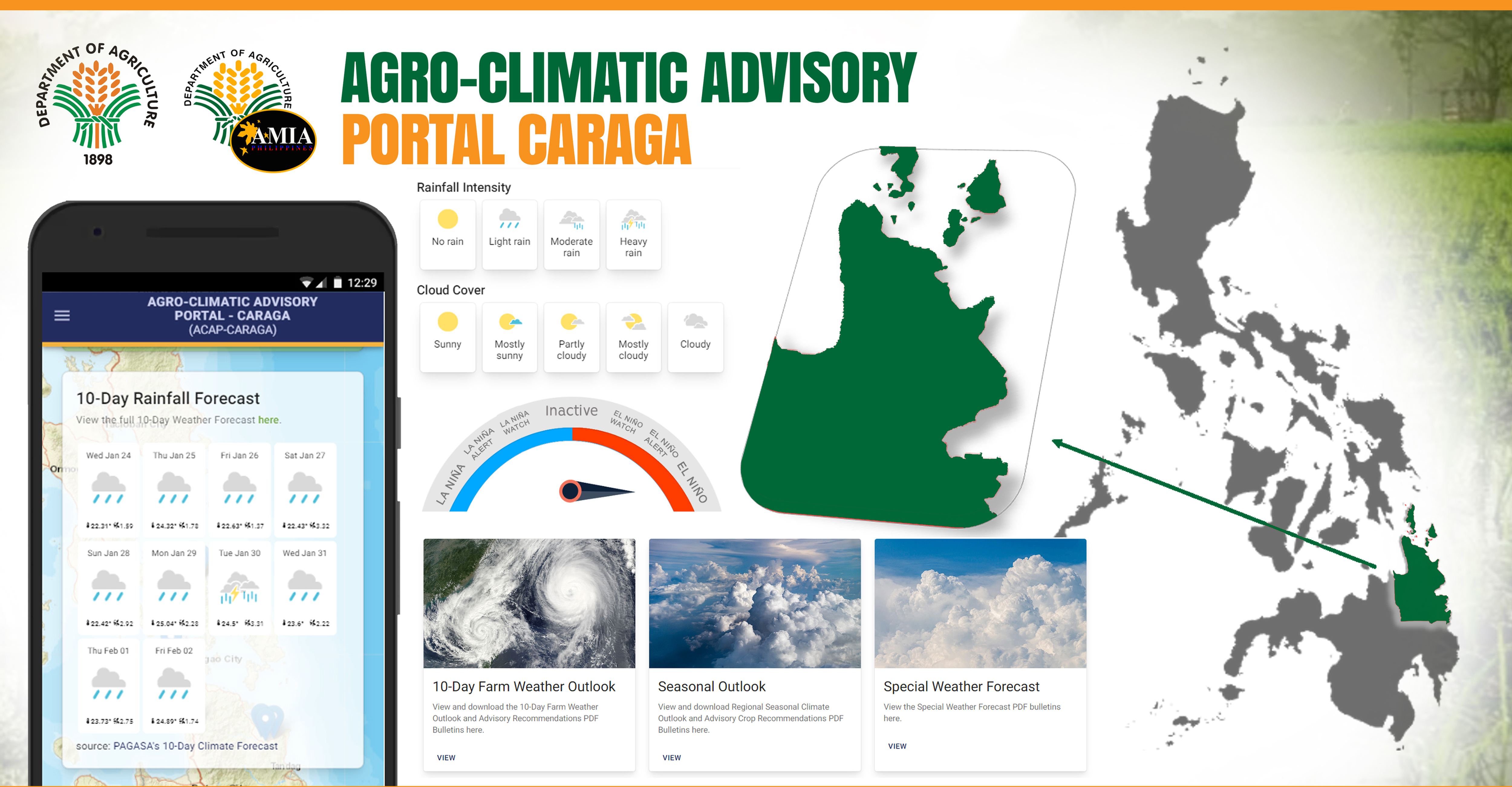Climate Risk Vulnerability Assessment (CRVA)
Decision Support Tool

Climate change and variability continue to exert increasing pressure upon the agricultural sector of the Philippines. Understanding significant farm vulnerabilities to climate risks is fundamental to achieving resilient farming systems, especially among poor rural households.
Climate Risk Vulnerability Assessment (CRVA) is a comprehensive assessment framework of vulnerability linked to climate risks. It aims to identify which communities are most vulnerable to climate change effects to ensure that strategic and effective investments and interventions can be made to help them adapt.
CRVA seeks to determine the exposure of the communities to climate risks, including long-term and recurring climate variability and extremes, which threaten their production systems and livelihoods, as well as their capacities to respond to these threats. With these information, short term and long term adaptation measures can be identified towards building communities’ climate resiliency.
How is the CRVA prepared?
CRVA is prepared by analyzing three main indices, which include the following:
- Exposure to climate-related risks and hazards,
- Sensitivity of crops to changes in temperature and precipitation; and
- Adaptive capacity or the ability of a system to adjust to climate change.
Vulnerability assessment through CRVA is a key step in building climate resilient communities. It guides decision-makers in identifying the geographical areas that are in most need of interventions, and the types of interventions appropriate for each geographical area.
It contributes to the DA commodity investment planning by addressing municipality-level climate risk and prioritizing needs for adaptive capacity of communities thru designing and planning appropriate interventions and climate resilient agriculture (CRA) options.
Agro-Climatic Advisory Portal (ACAP)
Decision Support Tool
Following the initiatives of AMIA on Climate Information Services (CIS), UPLBFI and the Alliance of Bioversity International and CIAT (Alliance) collaborated to develop a digital application that will serve as a more convenient yet comprehensive platform for disseminating agro-climatic advisories to the farmers. Termed the ACAP, this digital CIS platform aims to guide extension workers in creating and disseminating relevant and tailored advisories and recommendations in agricultural communities in all Regions.


Agro-Climatic Advisroy Portal (ACAP) is a centralized hub for developing Climate Information Services (CIS) in the all Regions of the Philippines. It contains relevant weather and climate information that can be used to create tailored advisories and commodity recommendations.
ACAP Features:
- 10-day Farm Weather Outlook and Advisory
- Seasonal Climate Outlook and Advisory
- Special Weather Forecast and Advisory
- Commodity recommendations